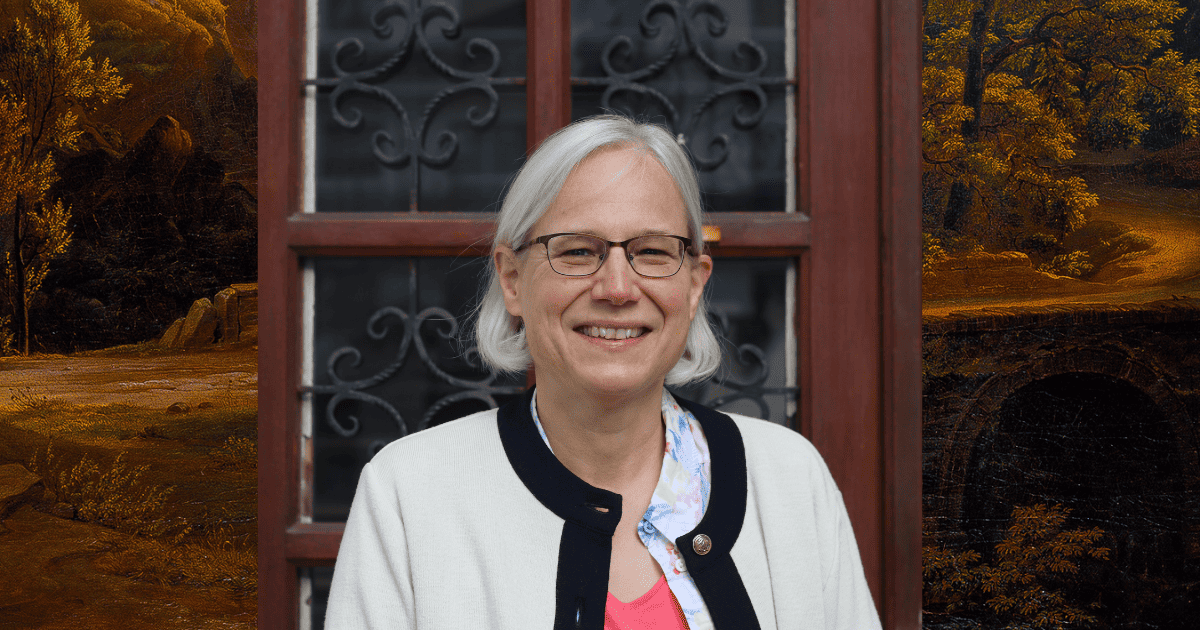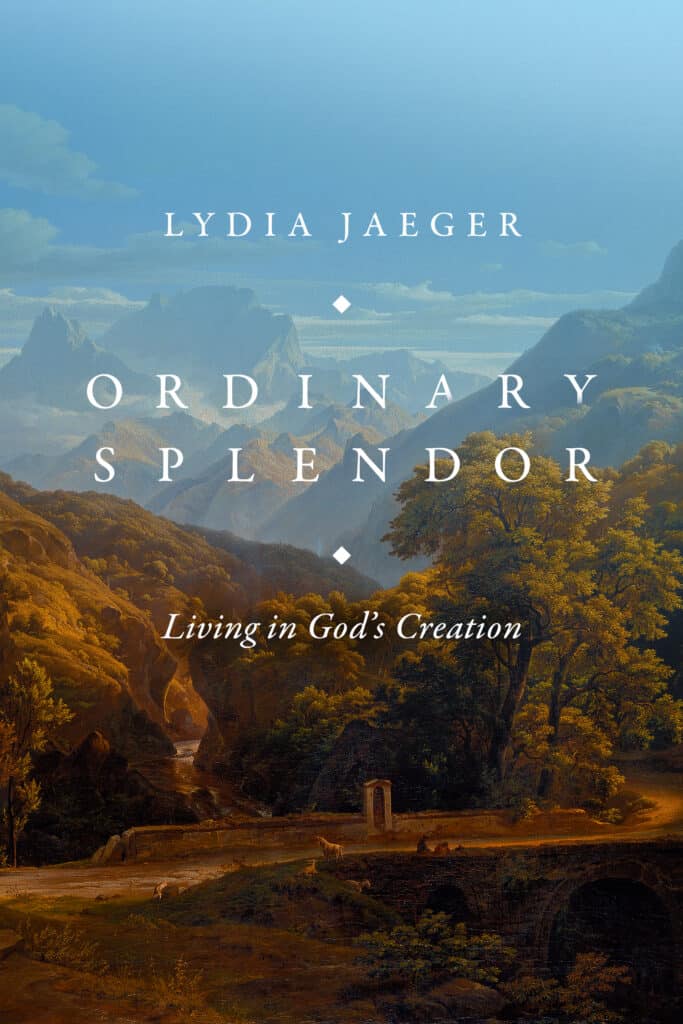
In Ordinary Splendor: Living in God’s Creation, Lydia Jaeger presents the doctrine of creation in all its practical necessity. During this interview, we discuss how “Science is an exploration of God’s created order” and “what it means to be created by and for God” below.
Lexham Press: Share things about yourself that only your friends would know.
Lydia Jaeger: Whenever I can, I orient my desk so that I can look out of the window into the green while working on my computer. Observing little details in the garden: birds, flowers… helps me to stay concentrated.
And I enjoy reading “real” books (that is, printed on paper)—in particular when I can take them outside to a quiet place. A walk is part of my daily working routine – it’s an excellent opportunity to think things through, to pray, to ponder on the next project. I also prefer to walk while talking to people – my colleagues and students know this and are often dragged out for a walk in the woods that is close to our college when we want to have undisturbed time for a discussion.
LP: What inspired you to write Ordinary Splendor and who should read it?
Jaeger: Ordinary Splendor originated when I was invited to present my PhD research in philosophy of science at a spiritual retreat. At first, this seemed to be an impossible mission: who would want to listen to philosophy of science at a spiritual retreat? But this challenge turned out to be the first step in exploring the practical implications of the doctrine of creation – a topic which has been with me ever since.
Too many Christians avoid the topic of creation as they fear getting dragged into endless discussions on scientific theories of origins. And too many non-Christian wrongly believe that it’s just a weird idea from the past. But in reality, nothing makes sense without creation. Creation is the grandiose message of the very first chapters of the Bible. It impacts what we think about every aspect of daily life, from work and food, to sex and marriage, from ecology to discrimination. And creation provides the framework in which to understand salvation, which is essentially the re-creation of what sin has marred.
This book was originally written in French for undergraduates of all fields so it’s suitable for a non-specialist audience. It has been widely used in church and student groups. The chapters are short, with practical applications and its theme makes it relevant to a wide Christian readership of all denominations. I hope this book will also be useful for students in American Christian universities, as well as pastors and church leaders.
LP: What is the big picture idea of Ordinary Splendor?
Jaeger: Setting aside the usual discussions of the “how” and “when” of creation, Ordinary Splendor invites us to discover what it means to be created by and for God. Through a detailed study of Genesis 1–2, I uncover the implications of creation for our daily life.
Just to give you a taste of the range of topics covered, I talk about:
- The adoration of the Creator
- The dignity of humankind
- Science
- Marriage
- Sex
- Family
- Work
- Food
- Rest
Science is an exploration of God’s created order and good technology allows nature to deploy its potential rather than rebel against the created order. Living as a creature means for us that we recognize God’s commandment as the appropriate framework in which human life can prosper and that we accept our limits as part of God’s good creation, instead of leading a restless life. Salvation is not found in escaping nature or the body, but in finding true humanity in Jesus, who through the cross reopens the route to the tree of life.
The book concludes on the theme of rest, giving fresh insight into the meaning of the Sabbath commandment for Christians today. Through a careful study of the seventh-day account, we can understand how God is at rest from creation while still at work in sustaining and providing for it. The fact that God rests from his creation is a sign of its completion. We receive everything in life as a gift. Similarly, Christians enter God’s rest through the perfect and complete saving work of Christ; there is nothing to add and we can rest from our attempts at good works. Salvation is a perfect and complete gift.
LP: Why do you write?
Jaeger: “What can be said at all can be said clearly…” Books are a great way to clarify your thoughts. I enjoy reading, listening to, and writing books. It helps me to understand a topic better when I organize my thoughts in a written text.
Writing allows us to “weigh your words,” as we say in French: to search for the precise expression that conveys all the necessary nuances. Reading and writing is like entering into an extended conversation, where the author takes the time to reflect on what is the right thing to say, and how to say it best; and where the reader (hopefully) ponders thoughtfully on the message which is conveyed. It allows us to slow down and listen.
Books allow us to broaden the circle of people with whom we form a learning community.







